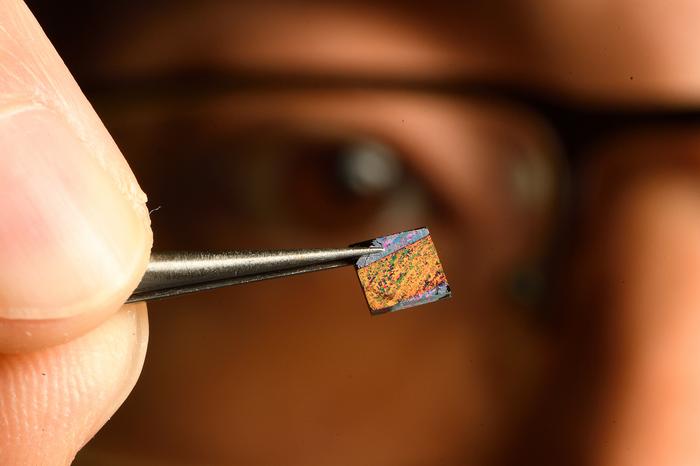Researchers have developed a fast and accurate blood test that can diagnose heart attacks in minutes rather than hours, potentially speeding critical treatment.
Summary: Scientists at Johns Hopkins University have invented a new technology using biophotonics to quickly and accurately detect the earliest biomarkers of a heart attack in blood samples, providing results in 5-7 minutes compared to current tests that take an hour or more.
Estimated reading time: 4 minutes
A groundbreaking new blood test developed by researchers at Johns Hopkins University could revolutionize how quickly heart attacks are diagnosed, potentially saving lives by enabling faster treatment. The test can detect the earliest signs of a heart attack in just 5-7 minutes, a dramatic improvement over current methods that often take an hour or more.
The Critical Need for Rapid Diagnosis
Heart attacks require immediate medical intervention to improve patient outcomes. However, early diagnosis can be extremely challenging, especially outside of a clinical setting. Lead author Peng Zheng, an assistant research scientist at Johns Hopkins University, explains:
“Heart attacks require immediate medical intervention in order to improve patient outcomes, but while early diagnosis is critical, it can also be very challenging—and near impossible outside of a clinical setting. We were able to invent a new technology that can quickly and accurately establish if someone is having a heart attack.”
This rapid diagnostic capability is crucial, as an estimated 800,000-plus people have heart attacks every year in the United States alone. Heart attacks remain one of the trickiest conditions to diagnose, with symptoms that vary widely and biological signals that can be subtle and easy to miss in the early stages when medical intervention can do the most good.
How the New Test Works
The heart of the invention is a tiny chip with a groundbreaking nanostructured surface on which blood is tested. Senior author Ishan Barman, a bioengineer in the Department of Mechanical Engineering at Johns Hopkins, describes the technology:
“The chip’s ‘metasurface’ enhances electric and magnetic signals during Raman spectroscopy analysis, making heart attack biomarkers visible in seconds, even in ultra-low concentrations.”
This innovative approach allows the test to be both faster and more sensitive than current methods. It can flag heart attack biomarkers that might not be detected at all with current tests, or not detected until much later in an attack.
Advantages Over Current Diagnostic Methods
Currently, people suspected of having heart attacks typically undergo a combination of tests to confirm the diagnosis:
- Electrocardiograms to measure the electrical activity of the heart, which take about five minutes
- Blood tests to detect hallmarks of a heart attack, where lab work can take at least an hour and often has to be repeated
The new stand-alone blood test provides results in just 5-7 minutes. Moreover, it’s more accurate and more affordable than current methods.
Potential Future Applications
While created for speedy diagnostic work in a clinical setting, the researchers envision broader applications for this technology. Barman suggests:
“In the future we hope this could be made into a hand-held instrument like a Star Trek tricorder where you have a drop of blood and then, voilà, in a few seconds you have detection.”
Such a tool could be invaluable for first responders in the field or even for individuals to use at home. The technology’s potential extends beyond heart attack diagnosis as well. The researchers say it could be adapted to detect cancer and infectious diseases.
Next Steps
The team plans to refine the blood test and explore larger clinical trials. Given the test’s speed, accuracy, and potential for use outside hospital settings, it represents a significant advance in cardiac care diagnostics. As Barman notes, “There is enormous commercial potential. There’s nothing that limits this platform technology.”
With further development, this innovative blood test could transform how heart attacks are diagnosed and treated, potentially saving countless lives by enabling faster intervention during those critical early moments of a cardiac event.
Quiz
- How long does the new blood test take to provide results? a) 1-2 minutes b) 5-7 minutes c) 15-20 minutes d) At least an hour
- What is the key component of the new test? a) A large laboratory machine b) A tiny chip with a nanostructured surface c) A Star Trek tricorder d) An electrocardiogram
- Besides heart attacks, what other conditions could this technology potentially detect in the future? a) Only other heart conditions b) Cancer and infectious diseases c) Broken bones d) Vitamin deficiencies
Answers:
- b
- b
- b
Glossary of Terms
- Biomarkers: Biological molecules found in blood, other body fluids, or tissues that are a sign of a normal or abnormal process, or of a condition or disease.
- Biophotonics: The study of the interaction between light and biological matter.
- Raman spectroscopy: A technique used to observe vibrational, rotational, and other low-frequency modes in a system.
- Metasurface: An artificially crafted surface with subwavelength structural features designed to interact with electromagnetic waves in specific ways.
- Electrocardiogram (ECG): A test that measures the electrical activity of the heart.
Enjoy this story? Get our newsletter! https://scienceblog.substack.com/


